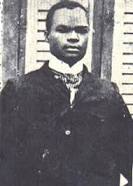 |
| Henry Sylvester-Williams |
An Introduction to Pan Africanism
Defining Pan-Africanism is a complex task due to the
intricate nature of its being, but can best be described as a philosophy which
advocates for the fellowship of Africans in culture, politics, and ideology. One
of the founders of Pan-Africanism in its modern form is a man named Henry Sylvester-Williams.
In 1897 he created what was called then called the African Association while in
England in order to promulgate the interests of African people and the horrid
injustices they were facing around the globe, and later organized the first
Pan-African Conference. While Sylvester-Williams was an originator of
Pan-Africanism, possibly its most prominent leader was Kwame Nkrumah, a
teacher, politician, and activist who was vital in helping Gold Coast (now
Ghana), secure its independence from the British empire. As the country’s Prime
Minister, he held up Pan-African values by working to establish cultural and
educational opportunities for men and women alike.
Pan-Africanism was championed by men like Nkrumah, but the
ideology has taken on other forms over time, including Afrocentrism, which in
basic terms is an outlook that calls upon people of African heritage to
appreciate and acknowledge traditional African values, which were thought to
have been pushed to the side or outright ignored in the face of European
slavery.
Modern Afrocentrism is an intellectual and academic ideology
which has its roots in the United States following the end of the Civil War and
the new freedoms afforded to slaves, who worked to create their own communities
and become educated. American civil rights activist W.E.B. Dubois is often
credited with coining the phrase, but today, the individual most associated
with Afrocentrism is Molefi Kete Asante, professor of African American studies
at Temple University in Philadelphia, Pennsylvania.
One of the often heard criticisms levied at Asante and
Afrocentrism in general, is that it is a pseudoscience, which is defined as a
system or claim that is supposedly scientific but does not adhere to the
scientific method. Critics have said that Afrocentrism shouldn’t be rooted in
academia because it promotes historical inaccuracies, vague generalizations,
and racism, which are all counterproductive. Instead, proper methodology should
be used in order to fully understand and gain awareness of the history of
African people.
The scientific method is a strict formula which means
forming a hypothesis, testing it through fair experimentation, gathering the
data, and then examining it to form a conclusion. Pseudoscience, on the other
hand, does none of this, and in fact can be extremely dangerous. One need only
look at the denial of the link between H.I.V. and AIDS or the refusal of
vaccines and medical treatment for children by their parents to see the truly
deadly consequences of pseudoscience. These examples are a reminder that
failing to maintain a proper academic standard and balanced approach to
intellectual literacy has real consequences, even if they are not yet fully
apparent.
Rejecting pseudoscience and religious “spookism” – in which individuals
believe they can communicate or become embodied by spirits, is an important
part of redefining what it means to be soundly conscious of the true legacy of
Pan-Africanism and men like Sylvester-Williams and Nkrumah.


No comments:
Post a Comment